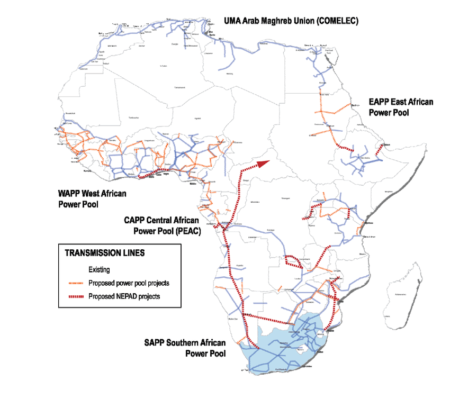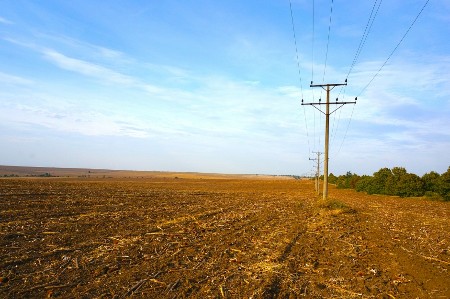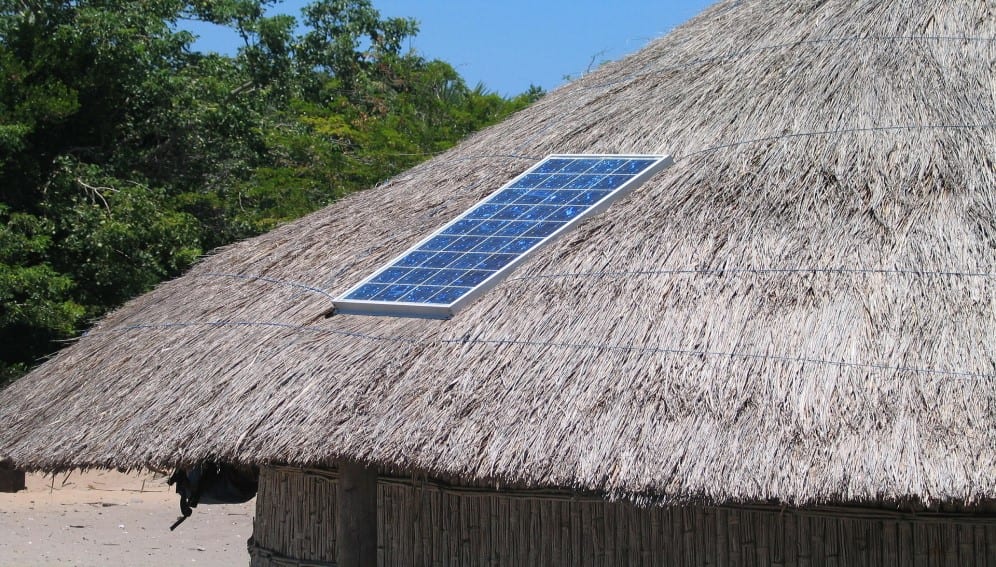In Africa, access to reliable mass-distributed electricity is far from ubiquitous as you can see from the map below which depicts the continent’s existing transmission network.
 The many blank spaces indicate that grid-distributed energy is a luxury for much of the continent. But does Africa have to build a power grid infrastructure similar to those found in Europe and North America? Or can the continent develop an electricity distribution model that is a true reflection of the 21st century?
The many blank spaces indicate that grid-distributed energy is a luxury for much of the continent. But does Africa have to build a power grid infrastructure similar to those found in Europe and North America? Or can the continent develop an electricity distribution model that is a true reflection of the 21st century?
Think how much of Africa has implemented telephone infrastructure. Instead of telephone poles and landlines, the continent has been able to deploy mobile cellular networks with more than 650 million users on the continent. That number is greater than the number of cellphone users in either the United States or Europe. How has Africa created its cellular network without a parallel electricity grid provides clues as to how the continent should move forward on the issue of power.
Why not dispense with a grid entirely? I look at the picture below and see an interesting juxtaposition of old and new: a thatched-roof hut powered by a solar panel. Consider this a metaphor for how Africa can move ahead with electrical infrastructure different from Old and New World paradigms.
What Africa needs today is reliable electrical power. For much of the Sub-Saharan part of the continent, there is little to no electricity. According to United Nations-collected data, as of 2014, this has impacted 62% of the population.
Africa can leapfrog transmission towers and power lines, and go off-grid to a large extent by developing local distribution clusters powered by wind, solar, geothermal, and micro-nuclear while keeping the existing utility infrastructure of hydroelectric and thermal power plants without a larger investment. To go beyond local distribution of electricity, Africa may consider developing technologies such as microwave-energy transmission.
Today in Sub-Saharan Africa, off-the-grid small villages are connected to the Internet by standalone telecommunications installations like Clear Blue Technologies, a Toronto-based company. Each installation is powered by solar and battery backup and provides communities with WiFi Internet connectivity and phone service. The same technology is also delivering electrical power to villages, lighting homes and powering refrigerators and other appliances. So we know that off-grid can work.
But what about energy distribution clusters? In 2016, a building in Bloomington, Minnesota installed a microgrid, a distributed energy generation decentralized technology that no longer required hookups to long-distance transmission lines. In other words, it was grid-independent. The building was powered by a combination of natural gas turbines, a solar array, wind turbines, battery storage, a diesel backup generator and in the event of all the others failing, a utility connection to the local grid provider.
The city of Adelaide in South Australia has clusters of buildings in its downtown all powered through a series of microgrids, each with solar panels supplemented by battery backup and more conventional energy generation.
Then there is transmitting energy without wires. Emrod, a New Zealand-based company has developed a method of wirelessly transmitting electricity over long distances safely. Powerco, New Zealand’s second-largest energy provider, is its first customer.
And a quick note about microreactors. Earlier this week I posted a story about this emerging technology. These are small output modular reactors for use individually or conjoined where more energy capacity is needed. They can be dropped into almost any community to power a village or a cluster of companies independent of the power grid.
So does Africa need to fill the map above with more transmission lines? Not with what is available to them here in the 21st century.










